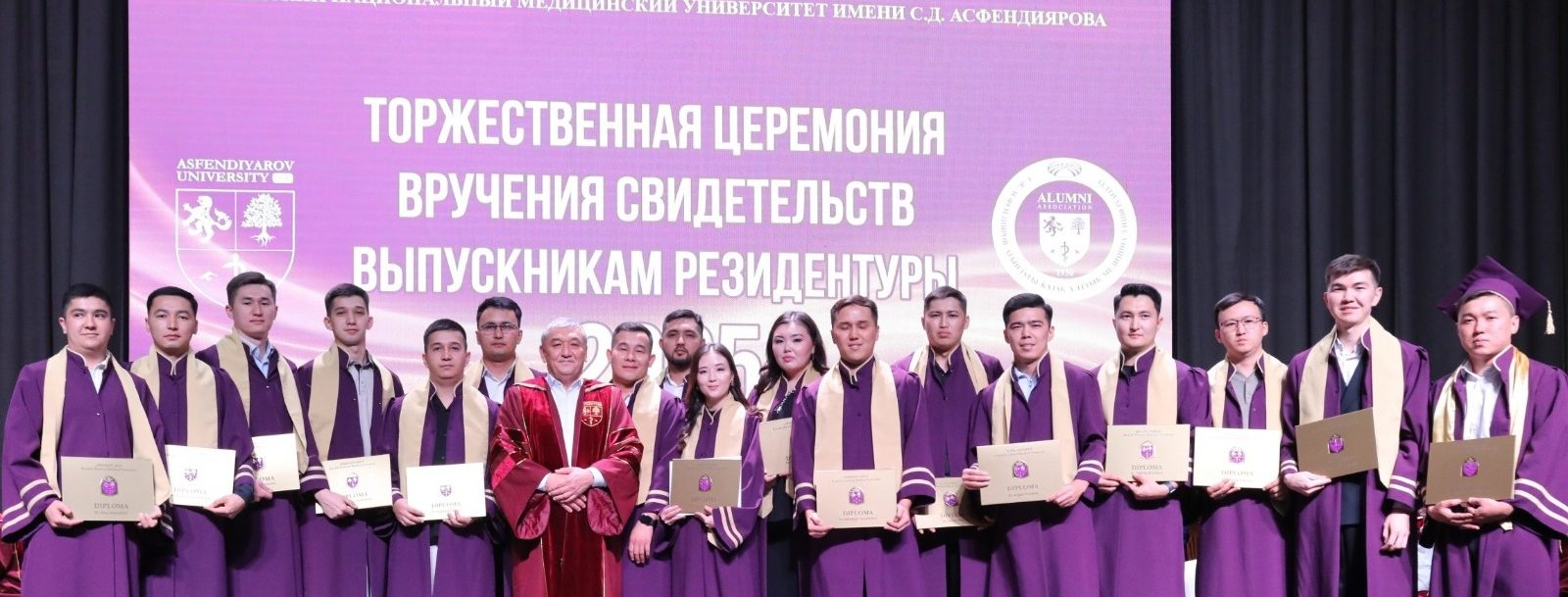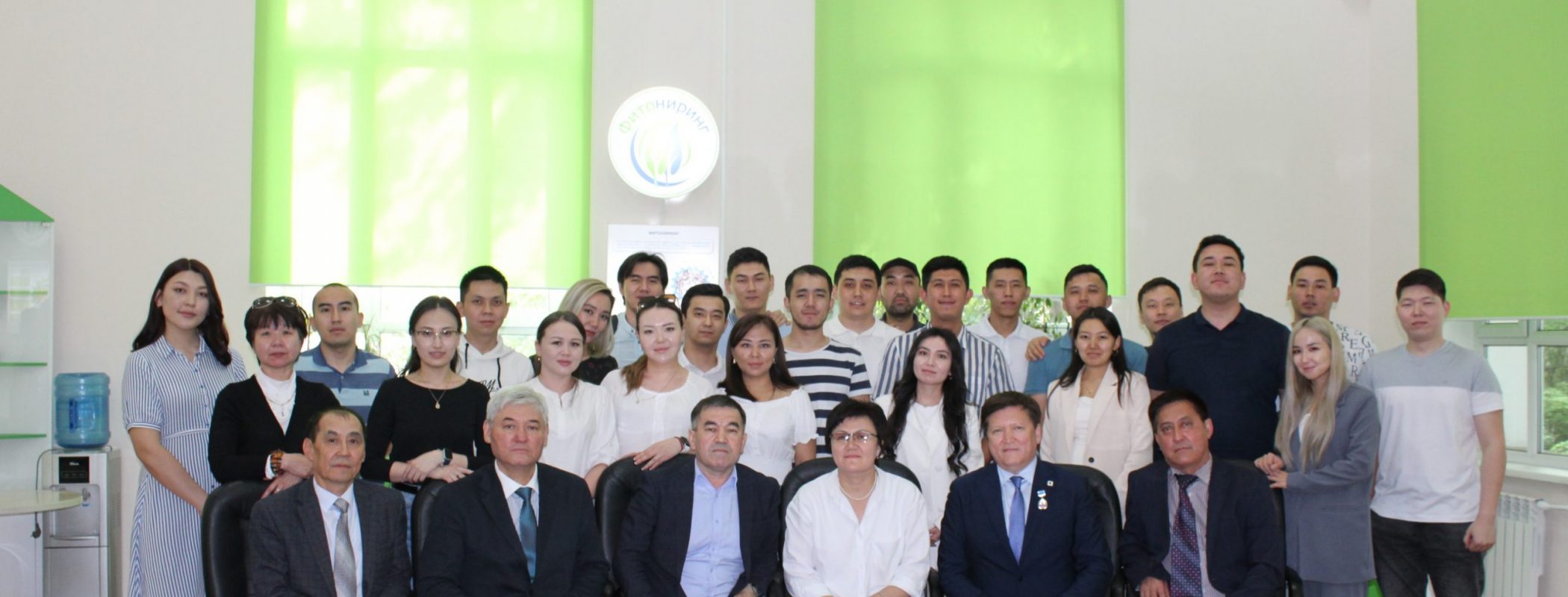Postgraduate and professional education at the Kazakh National Medical University named after S.D. Asphendiyarov offers training in Residency and at Master’s and Doctoral (PhD) levels.
- Residency (in the Republic of Kazakhstan) is a form of obtaining postgraduate medical education on clinical specialties in-depth (will be obligated for all clinical specialties since 2014)
- Residency programs provide clinical training and profound specialized training in relevant speciality
- Prior education for those wishing to learn the Residency is a basic medical education, medical degree and internship
- The duration of Residency ranges from 2 to 4 years depending on the specialization and previous training program
- Those, who started Residency Training Programs and successfully pass the government’s attestation, will be awarded by a specialist’s qualification (according to the chosen speciality).
Specialties of Residency:
| № | Name of specialization | Training dates |
| 1 | Obstetrics and Gynecology | 3 years |
| 2. | Endocrinology, including Children | 2 years |
| 3. | Otorhinolaryngology, including Children | 3 years |
| 4. | Cardiology, including Children | 3 years |
| 5. | Ophthalmology, including children | 3 years |
| 6. | Pediatrics | 2 years |
| 7. | Neonatology | 2 years |
| 8. | Infectious diseases, including Children | 2 years |
| 9. | Dermatovenereology, including Children | 2 years |
| 10. | Neuropathology, including Children | 2 years |
| 11. | Oncology, including Children | 2 years |
| 12. | Pathological anatomy, including Children | 2 years |
| 13. | Psychiatry | 2 years |
| 14. | Child psychiatry | 2 years |
| 15. | Radiology | 2 years |
| 16. | Radiation therapy | 2 years |
| 17. | Dentistry, including Children | 2 years |
| 18. | Traumatology and Orthopedics, including Children | 3 years |
| 19. | Phthisiology, including Children | 2 years |
| 20. | General surgery | 3 years |
| 21. | Angiosurgeons, including Children | 4 years |
| 22. | Heart surgery, including Children | 4 years |
| 23. | Pediatric Surgery | 3 years |
| 24. | Oral and maxillofacial surgery, including Children | 3 years |
| 25. | Allergology and Immunology, including Children | 2 years |
| 26. | Rheumatology, including Children | 2 years |
| 27. | Urology and andrology, including Children | 3 years |
| 28. | Clinical Laboratory Diagnostics | 2 years |
| 29. | Nephrology, including Children | 2 years |
| 30. | Sports Medicine | 2 years |
| 31. | General practitioner / family medicine | 2 years |
The purpose of residency training is to prepare physicians to work independently to provide tertiary care in accordance with the principles of evidence-based medicine and the latest developments in medical diagnostic, pharmaceutical technologies. The main objective of the residency is to prepare highly competitive professionals in accordance with international labor standards.
Individuals who have mastered the residency training programs and successfully passed the state certification, is awarded the qualification of a specialist (in accordance with the chosen specialty).
An application process for Master’s degree, Residency, Postgraduate and Doctoral levels and Research Institutions is conducted from the 20th of June to the 20th of July.
Entrance exams to the Residency are carried out from the 1st to the 20th of August, enrollment is up to 31st of August.
Applicants for Residency have to pass the following entrance exams:
1) in one of the foreign languages (English, French, German);
2) speciality.
Foreign citizens entering the Residency have to pass the following exams:
1) Kazakh or Russian languages (the language of instructions);
2) Speciality.




